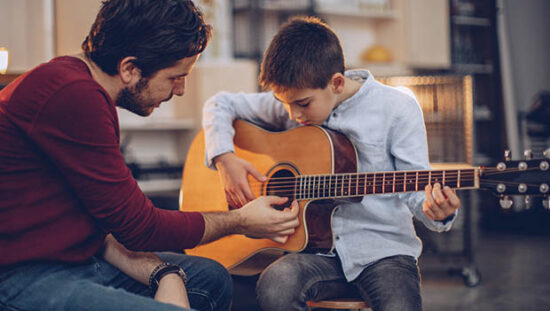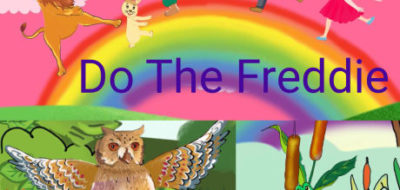When your child expresses an interest and passion for learning to play, say, a piano, it is the responsibility of parents to support that newfound enthusiasm. Naturally, you do not want to waste the natural talent and untapped potential of your child.
Besides, parents should think of it as a new adventure for their kids and themselves. After all, it is the age of social distancing and what better way to help your child make the most out of a musical instrument? The good news is that you don’t need an expensive music teacher with rigid rules. Learning the basics of guitar is not as overwhelming as you may think.
In fact, an automated app would be more than enough to get all the necessary tools, professional guidance, and learn new techniques to play a musical instrument like the piano. Here’s how you can show your support on your kid’s musical journey:
The Support Starts at Home
It is true – your kid can experiment with a musical instrument in the comfort of your home. Your goal, however, should be to collect household items that may be helpful to your kid’s piano lessons. For instance, the placement of a comfortable chair or stool would make the piano lessons better.
You can also put a tissue paper box or a soft linen fabric to clean keys and hands. Similarly, you can place a small water bottle right beside the musical instrument for more convenience. You can brighten up the musical instrument by adding supplemental details in the room.
Become Your Kid’s New Organizer
You know your kid needs more practice on the piano. So, help your kid improve their time management. It is a skill that would allow your kid to schedule the small piano sessions on their own. Whether your kid wants to practice in the morning or evening, convey the importance of routine to your kid for more effective practice sessions.
Open to Listening
Listening to music instrument like the piano comes with a multitude for kids. For instance, listening to music improves the physical and mental movement. In fact, it would help your kid who wants to hone his or her motor skills. As a parent, your goal should be to create a shared bond that allows ideas to flow. The more you listen, the more open your child would be to play a musical instrument.
Become the Sole Negotiator
Sure, learning to play a musical instrument can be hard. What’s weird is that the practice often comes across as a tedious process. However, parents and guardians can transition into the role of a negotiator and make the learning process exciting and fun.
Learning a new musical instrument means new challenges for your kid. Therefore, make sure to preserve the skills of your kid through constant encouragement. And before you know it, your kid would play a new piece of music composition flawlessly.
Communicate Everything
There must be an open relationship between you and your kid. However, if you feel like you are not as communicative as you should be, you can bring another family member or close friend to communicate. Nonetheless, make sure you can communicate with your kid freely.
Also, if there is a conflict between homework and piano sessions, prioritize the time on behalf of your child. Your goal should be to avoid arguments or confusion your kid may have to face later on.
Offer Guidance When You Can
When your kid is practicing, you must hear various musical fragments that involve repetition. Now, you don’t have to be completely objective about it. Naturally, the start of the practice always results in unpleasant sounds. Therefore, practice tolerance and perseverance until your kid figures out the technique of a musical instrument.
Moreover, you can offer guidance with rewards as an encouragement tactic. Besides, if you want your kid to play his best, don’t enforce a tough schedule or excessive discipline requirements. In fact, make sure extraneous elements do not get in the way of your child’s learning process.
Become the Most Avid Supporter of Your Child
You don’t necessarily have to be a musician to show unconditional support to your kid. When your child starts to learn a musical instrument, you have to be their most first supporter. You can hear small improvements throughout your kid’s learning process and offer support at every chance you get.
Furthermore, you can offer more privacy to your kid. You can, for instance, learn the basics of music reading and help your kid learn faster. Your underlying objective should be to take an interest in your child’s learning process and see what techniques are more suitable.
There’s Always Room to Encourage More Practice
The path to perfection requires continuous practice. And that is the notion you must normalize within comfortable boundaries that would assure your kid to become a natural pianist. However, it does not mean you have to nag or remind your kid about the encouragement consistently.
In fact, aggressive behavior results in a negative association. Instead, create indirect approaches that would influence your kid to practice more on a musical instrument.
The best course of action would be to free your kid of any restrictive obligations to play the piano and let him or her have fun. You do not have to be present at every learning step, but make sure to create a support system that encourages creativity.
Wrap Up
It is an absolute delight to see your kid play a musical instrument. That joy ultimately represents the pride you feel as your kid learns to play a new musical instrument. Naturally, you cannot help but show love and appreciation for your kid.
However, it is vital that you show support and encouragement to your kid throughout the learning process. You can expect a success once your kid continues to develop new skills on a musical instrument.In fact, it would become a routine and habit for your kid to learn more new techniques.Your kid does not have to endure the physical exhaustion of long piano sessions from a traditional pianist.
Take a look at the exciting online piano lessons and help your kid learn everything there is to know about the piano. From selected songs to hand techniques to professional assistance, Skoove’s represents a fun approach to learn a musical instrument.








